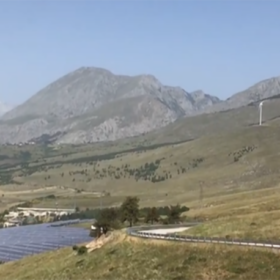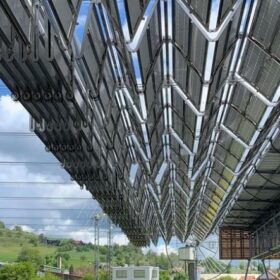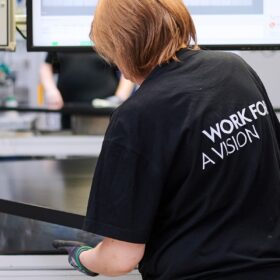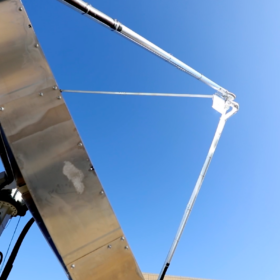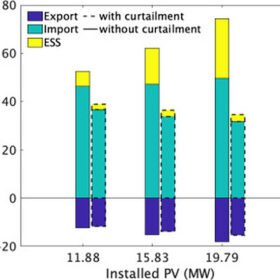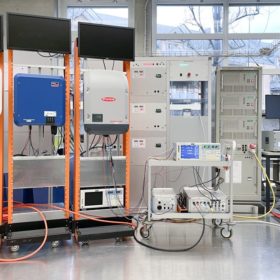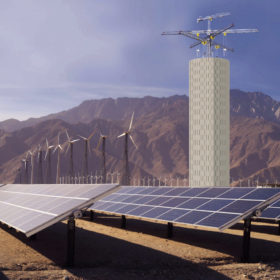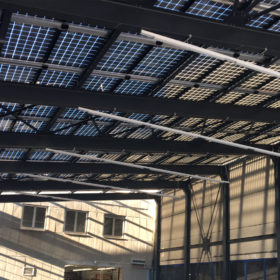IGE partners with Axpo on Italian green hydrogen project
Western Australian renewable hydrogen company Infinite Green Energy will team with Switzerland’s largest renewable energy producer Axpo to develop a large-scale solar-powered green hydrogen project in central Italy.
Foldable solar carport extends, retracts in response to weather
Solar technology company Dhp Technology AG plans to deploy new retractable PV systems at 45 motorway service areas in Switzerland. The foldable arrays can be retracted and protected during extreme weather conditions or hail storms.
Meyer Burger shifting focus to US market
Switzerland-based manufacturer Meyer Burger is now prioritising the establishment of new module and cell production facilities in the United States, driven by favourable market conditions in the country.
First commercial gravity-based energy storage tower begins commissioning
Energy Vault has begun commissioning a 25 MW / 100 MWh energy storage tower adjacent to a wind power facility outside of Shanghai.
Swiss team sets record solar-to-hydrogen rate
Researchers from Switzerland’s École Polytechnique Fédérale de Lausanne have unveiled a new solar dish plant design, while Plug Power has delivered its first electrolyser system to Europe.
Solar curtailment vs. storage
Swiss researchers have looked at whether storage could be cheaper than curtailment in medium-voltage distribution networks with significant amounts of PV capacity. They considered storage costs, operational costs, grid constraints, electricity costs, PV generation models, and loads.
Survey shows 34.3% failure rate for residential inverters over 15 years
The Bern University of Applied Sciences in Switzerland has published the initial results of a survey on the durability and performance of residential PV inverters and power optimisers over a 15-year period. They found that more than 65% of the inverters did not present yield-relevant faults by their 15th year of operation.
Proposed 330 MW Victorian solar farm opts for 500 MWh Swiss battery
Swiss energy storage company Energy Vault has been awarded the contract to supply the in development 330 MW Meadow Creek Solar Farm in Victoria with a 250 MW/500 MWh battery energy storage system.
Megasol reveals new solar PV in-roof system
Swiss module manufacturer Megasol has unveiled a novel rooftop PV system in two variants — full-black and translucent. The installation consists of vertical supports, a ridge profile, and solar modules.
Energy Vault signs deal with India for gravity-based energy storage
Switzerland’s Energy Vault will support Indian state-run power producer NTPC by deploying its gravity-based energy storage technology and software solutions.
